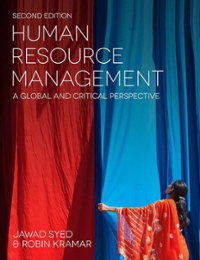Toyota's twin plants at Bidadi, Bangalore remained shut for 36 days owing to a workers' strike for
Question:
Toyota's twin plants at Bidadi, Bangalore remained shut for 36 days owing to a workers' strike for a wage hike. More than 4,000 members of the trade union went on strike as they demanded a rise in wages, holidays, and housing. The union also demanded that the automaker reinstate 30 employees who were suspended on charges of causing disruption to work. While the plants continued to work with 700-800 contract labourers, there was a 40 per cent decrease in production capacity. Toyota is the fifth largest automaker in India. Its two plants have an installed capacity to produce about 310,000 units annually. The unionised employees called off their strike after the state government intervened and directed the management and the union to restore normalcy and harmony in operations.
In recent decades, the Indian State of Tamil Nadu has been attracting enormous investment into automobile and accessories manufacturing. However, investors and manufacturers have of late become quite worried about repeated labour unrest, which is also impeding future investment in the state.
Hyundai, the second largest car maker in the country, is facing a similar situation. In May 2010, Hyundai employees threatened a sit-in strike after the company refused to reinstate 35 employees who had been dismissed for alleged misconduct. According to a news report, the company was not able to meet the agreed deadline to reinstate the dismissed workers. The company has been making frantic efforts for a possible settlement with the dismissed employees, offering them certain financial compensation as a part of the settlement.
If the strike announced in May 2010 does go ahead, it will be the third strike at Hyundai over the past year. Previously, in April 2009, employees went on strike for 18 days after the company laid off 65 workers. Then again, in July 2009 , employees went on strike protesting a wage agreement that had allegedly been signed by a minority union (or pocket union).
However, Hyundai is not the only company suffering as a result of labour unrest. In May 2009, workers at MRF struck work for several months, demanding recognition of their union. In September 2009, a senior official at Pricol was killed in workers' unrest in the auto-ancillary hub of Coimbatore, which resulted in a work closure lasting more than a month.
According to Abdul Majeed, an auto sector leader at PWC, labour laws are to be blamed: 'Our labour laws need an amendment. No one wins when it comes to dealing with labour. There has to be a give and take to some level amongst everyone. But our labour laws are the biggest of problems.'
The existing labour laws in India require large companies to seek prior permission from state governments before laying off workers or hiring workers on contract. These laws have been blamed by managers for encouraging workers to go on frequent strikes. With India positioning itself as the hub of small car production, such labour unrest may not send the right message to international investors.
Questions
1 In the light of this example, is it correct to blame laws for encouraging workers to strike?
2 Is it okay for a government authority to intervene for industrial peace and operational normalcy?
3 Is it always possible to reconcile the ethical and business implications of labour laws?
Step by Step Answer:

Human Resource Management A Global And Critical Perspective
ISBN: 9781137521620
2nd Edition
Authors: Jawad Syed, J; Kramar Syed, Robin Kramar





